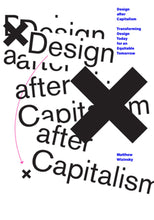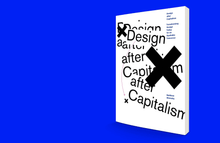How design can transcend the logics, structures, and subjectivities of capitalism: a framework, theoretical grounding, and practical principles.
The designed things, experiences, and symbols that we use to perceive, understand, and perform our everyday lives are much more than just props. They directly shape how we live. In Design after Capitalism, Matthew Wizinsky argues that the world of industrial capitalism that gave birth to modern design has been dramatically transformed. Design today needs to reorient itself toward deliberate transitions of everyday politics, social relations, and economies. Looking at design through the lens of political economy, Wizinsky calls for the field to transcend the logics, structures, and subjectivities of capitalism to combine design entrepreneurship with social empowerment in order to facilitate new ways of producing those things, symbols, and experiences that make up everyday life.
After analyzing the parallel histories of capitalism and design, Wizinsky offers some historical examples of anticapitalist, noncapitalist, and postcapitalist models of design practice. These range from the British Arts and Crafts movement of the nineteenth century to contemporary practices of growing furniture or biotextiles and automated forms of production. Drawing on insights from sociology, philosophy, economics, political science, history, environmental and sustainability studies, and critical theory fields not usually seen as central to design, he lays out core principles for post-capitalist design; offers strategies for applying these principles to the three layers of project, practice, and discipline; and provides a set of practical guidelines for designers to use as a starting point. The work of post-capitalist design can start today, Wizinsky says with the next project.
Physical Info: 178 x 254 x 23.88 mm | 352 pages | Paperback | B&W Illustration
The MIT Press
SKU: 9780262543569
Barcode: 9780262543569




